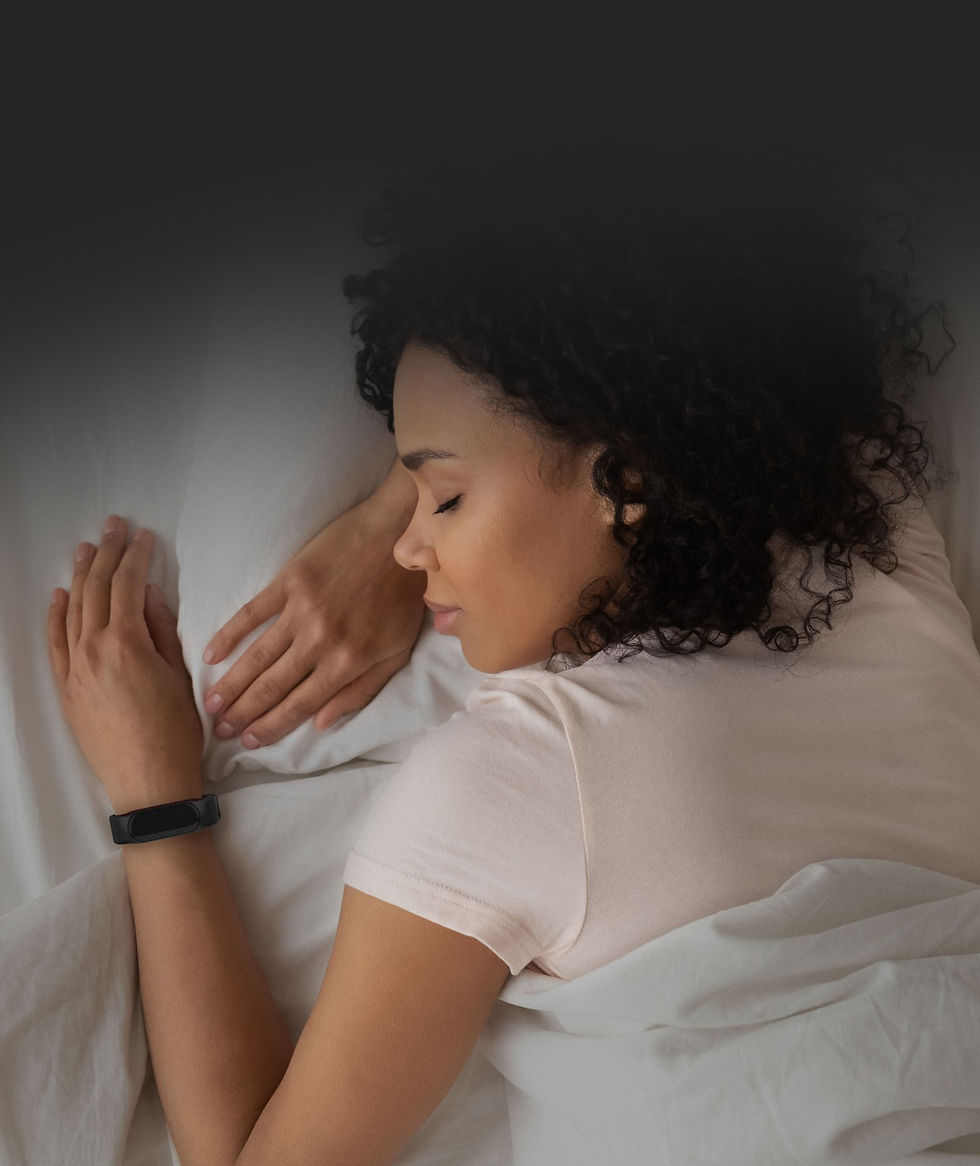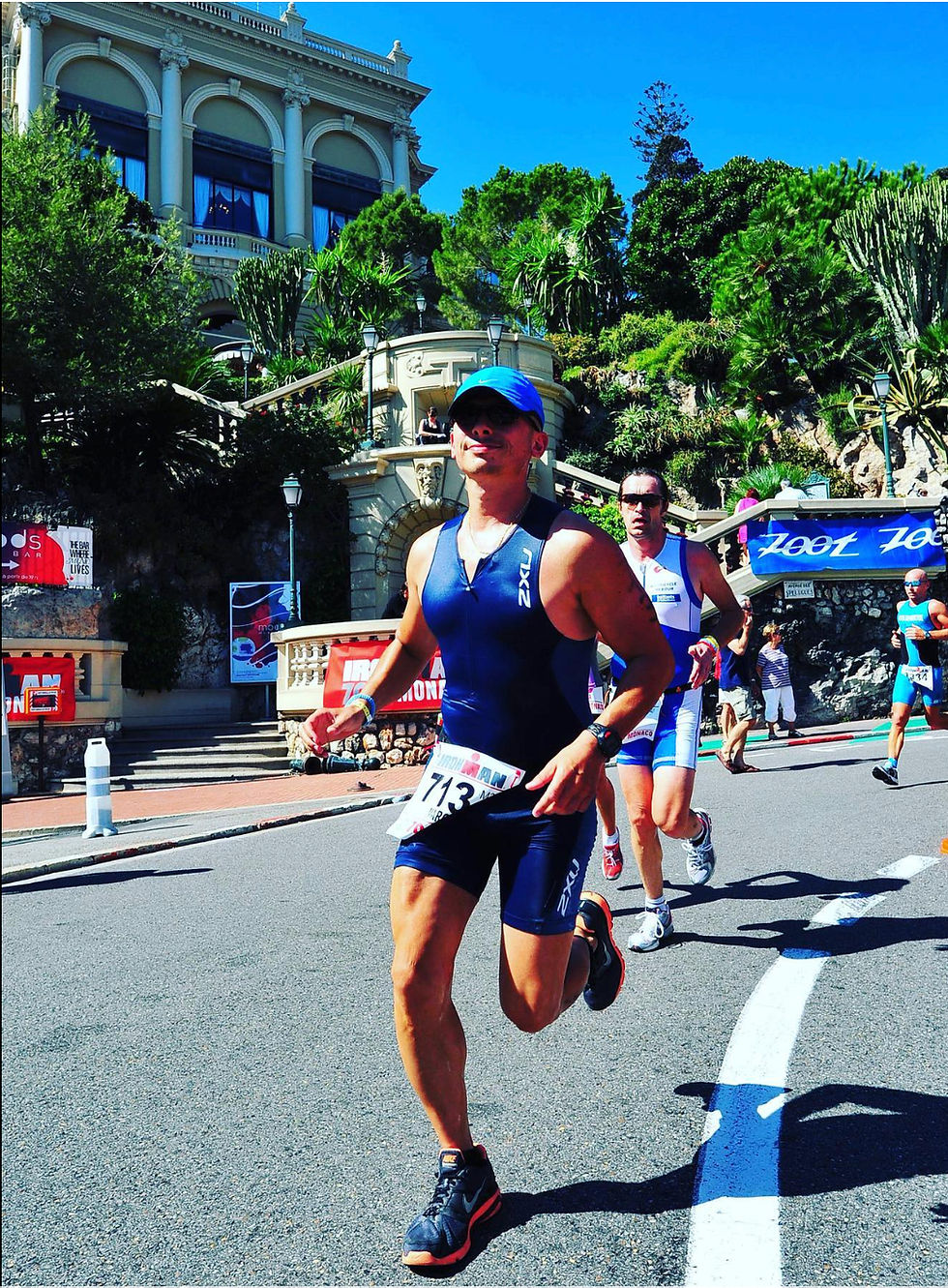The best action of your day is to sleep well
- Marco Paonessa
- Mar 12, 2022
- 7 min read
Updated: Mar 21, 2022
The future belongs to those who sleep well! Sleep is just as important as eating or drinking. Our culture has long stigmatized sleep, but it is a function which is to be taken with care as we would with a plant. For this we must: - Maintain regularity. - Provide healthy and sufficient resources. - Minimize the toxic factors that can weaken his condition.
Sleep manages a large part of recovery, of our reconstruction. It has its rhythm, its mechanisms and if we break them, it takes time to put back in place. When a client comes to see me, it's always after his sleep is totally unstructured. So let's try to take care of it from the start. The better we sleep, the more we have better self-control and a lower state of stress.

Sleeping allows the body to build itself (muscle, skin, bones, etc.), let's take the case of the athlete.
It is during recovery that we build, renew our tissues. A top athlete with good sleep has a real advantage over his competitors. The better we sleep, the faster we recover from intense exertion and the sooner we can reach higher levels of fitness… When we have recovered well, we can start another more intense session/cycle and so on. After having slept well, we accumulate more difficult sessions and therefore we improve our level. Sleep is an essential element for our daily actions, athlete or not.
A washing machine: to sleep is to clean oneself
It is also the time for cleansing: sleep has a fundamental biological role. It allows our body to cleanse itself by removing metabolic waste, including that of the brain. We call this the “glymphatic” principle, it helps cleanse the brain of toxins such as lactate and molecules responsible for neurological disease including Alzheimer's (AMA, Dr Antony Komaroff).
The disclaimer: popularization has its flaws through simplification, so yes, there are de facto choices. Under no circumstances is it advisable to take a product or do a new activity overnight without the advice of your doctor. Asking your doctor, self-medication and mixtures is a real problem. The same goes for rapid changes in your physical activities or habits.
Sleep is like a journey, and in each journey: 1. There is a departure, 2. And a comeback.
I. Take-off Destination sleep.
Pineal ->Serotonin -> Melatonin

It starts from the pineal gland which, among other things, allows us to maintain a certain rhythm in our biological life. It triggers serotonin to eventually allow the secretion of melatonin. Melatonin is the sleep hormone.
The Pineal gland and light
Light and all other light stimuli influence the pineal gland. Our body is very well made and it was built in relation to its environment. The sun is setting, the desire to sleep increases. And it is quite logical, our ancestors were organized (migration, hunting, culture... by day) by this rhythm, they did not hunt mammoths with a headlamp... By force of circumstance, this was put in place in our circadian rhythm which is our own internal clock.
The circadian rhythm will regulate certain physiological variables according to the time of day (body heat, blood pressure, secretion of certain hormones). Light is not limited to the sun today, which creates a real disruption.
Melatonin secretion begins at the end of the day and is limited to the middle of the night, so the hours of sleep before midnight/1am are more important than the hours of sleep after.
But since the solutions do not depend on a single variable, we each have a type of regulation to be up early/go to bed early or vice versa. We call this the Chrono type. If you want to test your chrono type here is the link of the questionnaire developed by two researchers (James A. Horne and Olov Östberg).
Serotonin
As we said, serotonin participates in the secretion of melatonin. The diagram is simple: the pineal gland secretes tryptophan, which secretes serotonin, which itself secretes melatonin. During the day, the volume of serotonin is influenced :

1. Through movement: movement, sport secretes serotonin. In other words: long live sport... long live movement... And if you have to do little: 15 minutes in the early hours of your day in the sun will be the best.
2. By stress: the more you are under stress, the less serotonin there is. So it's up to you to have a good idea of this level of stress during the day and its impact on your body. We cannot avoid certain stressors, but we can work on our feelings and our general nervous state to manage them as well as possible. By exercises of positive visualizations, breathing or psychocorporal I was able to solve many cases. I let you see the blog post on stress on the body if this subject interests you.
3. By diet: A poor diet leads to a deficiency in tryptophan and therefore a deficiency in serotonin.
II. Back from the trip… The alarm clock, the machine must be boosted.
For many years, I considered stress to be the only reason for my insomnia on Sunday evenings, the day before returning to the office. In fact, it was mainly due to the fact that I got up late on Sundays. So I shifted my whole wake/sleep cycle. Since then, I let myself go on Saturday mornings, on the other hand I impose a consistent wake-up time (compared to my agenda for the week) on Sunday mornings. Mondays were less painful and I didn't start my weeks with a sleep deficit and all the related symptoms (lack of enthusiasm, creativity, reactivity, etc.).
The booster: Cortisol
Cortisol is there to put us in a state of alertness. So adequate to go from sleeping to waking up, to sleep like a baby to transform like a Spartan going into battle… If cortisol helps when waking up, on the other hand in the evening, it interferes with falling asleep. So in certain doses, it becomes an enemy of our sleep.
How can we naturally act on our cortisol secretion to sleep well?
Hypothalamus -> Pituitary -> Adrenocorticals.
Its secretion depends on a number of stimulants. The production of cortisol takes as its starting point the hypothalamus, then the pituitary and finally the adrenocortical glands which is located just above the kidneys at the level of the third lumbar. In a chronic stress adaptation, you have increased cortisol levels.
If there is too much in a natural way, how can we act?
Avoid stimulants :
Food/drink: We are talking about bad food, bad drink. We are not talking about good/bad on a taste level, but nutritionally. The first function of eating and drinking is part of a functional logic, keeping our body alive. Our taste, in general, for sugar and fat is part of a logic of taking energy quickly in a world poor in easily available food. Which was the case 120,000 years ago. If I see a fruit, I take it because I don't know when I will have the next opportunity to see one again...
Visually exciting, there is certainly light, but its diffusion. Whether it's a video game, networks or even TV, it's not calm... Quick change of frames, zoom, advertising credits, shock noises to set the mood. Let's take a closer look at how it came together. They are machines to capture attention and keep us as long as possible. In short, all the elements to put in us a state of heightened vigilance in the face of stress. Looking at these screens allows us to think about something else. But that in itself is a stress on our body. So we think we are relaxing, but quite the contrary. And the worst is that our real sources of stress, which we will find the next morning, will be even more difficult to manage, because we have increased the general nervous state of your body. Your stress depends on the stressor and your sensitivity to it.
Ruminations: The cogito can be our enemy… This one is very endogenous: our thoughts. The ruminations on your ex, the aggressive email received or the little humiliation during the last meeting… Will be a stress that you inflict on your body. If you're thinking about "how to go to war" with your ex-husband, boss, neighbor, competitor, etc. It is certain that your body will put itself in a state to go... In war and not in the peace of sleep. So all the fixations, ruminations, they must be avoided. We offer very suitable positive visualizations for this by putting the warrior temporarily at rest.
So we have to go to the relaxants:
In the morning, a short physical activity is a good response to cortisol secretion and impacts the rest of the day.
As you have understood, the more you put your body and mind in a state of confidence and serenity, the more it will agree to sleep. So relaxation exercises are welcome: breathing, positive visualization, etc. But also of physical exercise: We are certainly talking about movement but gentle, stretching movements.
CONCLUSION and the strengths to get there…
What is important is not to know everything, but to act correctly with what we know to have definitive results. Sleep should be seen as something delicate and a function to make our day full of energy with all our cognitive and physical functions at the best level.

Lack of sleep: - Lowers our immunity - Increases our cortisol level. - Increases our cravings for snacking. - Increases addictions. - Prevents you from rebuilding yourself.
What to do :
Actions during the day: Our activities, our thoughts, our environment and our nutrition, especially from the afternoon until the evening, influence our ability to fall asleep.
Be active: have tiring days (healthily) and become aware of all the disturbing elements of sleep: lights, foods, drinks, ruminations. Prefer short outdoor activities early in the morning, in the sun… There is a big illusion: we are made to believe that a lot of things are there to do us good, but it is the opposite. These are stressors on the body (bad foods, drinks, screens, etc). Thinking/doing something else does not mean relaxing to be better, using another stressor only makes what is really stressing you more stressful. Yes, sleep is managed while awake.
Melatonin: The sleep hormone, it is diffused at the end of the day until 1/2h in the morning. It is secreted by the pineal gland when light stimuli fall, so yes all artificial lights prevent its secretion. the computer/games/TV decrease the quality of your sleep. It's better to go to bed early than to get up late.
Regularity: our body has a clock, we notice it when we always eat at the same time and by chance one day we cannot eat at that precise time. What's going on ? Feeling of lack?
If we frame the time to go to bed and the time to get up, sleep will take its marks and it will become optimal.
Nap: if tired take a short nap. The nap is not an alternative to sleep, but a complement. It has its virtues especially if it is short and far from lying.
We sleep in a particular context: our temperature must drop, thus favoring freshness. And we understood that light was toxic for sleep. A dark bedroom will be the ideal place. Full moon nights have their effects due to lunar luminescence...
If this subject is important to you and would like more information, or references on one of the topics covered, do not hesitate to contact us.
Marco PAONESSA
Practitioner relaxologist accredited ASCA
Life Coach certified




Comments